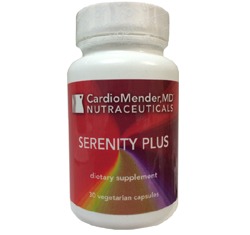Everyone feels stressed from time to time, and in some cases, stress can help you stay focused, energetic and alert. However, continued strain on your body from stress may contribute to adverse health outcomes, such as high blood pressure, diabetes, heart disease and more. While dealing with the impact of stress can be challenging, there are several ways you can manage it.
Here are some healthy activities and nutrients that can help you optimize relaxation and comfort:
Meditate 
Meditation is becoming a popular practice as more people discover its many health benefits. Not only does meditation enhance self-awareness and control anxiety, but it also reduces stress. In fact, stress relief is one of the most common reasons people practice meditation.
When we get stressed out, the space in our minds becomes occupied with a thousand thoughts. We then tend to feel pressure when we don’t have the space in our minds, nor in our lives. Meditation allows you to focus your attention and eliminate or organize the thoughts that are crowding your mind and causing stress.
Drink a Cup of Tea
Believe it or not, drinking a cup of caffeine-free tea can reduce stress and provide comfort. There are a ton of different kinds of tea in the world with a host of different natural ingredients that have been shown to relax the mind and decrease stress. Research shows that decaffeinated green tea has been proven to both decrease stress levels and improve quality of sleep.
There are several herbal teas that can help take the edge off occasional stress, including:
- Peppermint
- Chamomile
- Lavender
- Kava
- Green tea
Exercise
Exercise isn’t just good for your physical health, but it’s also great for your mental health and sense of well-being. According to research, “exercise improves mental health by reducing anxiety, depression, and negative mood and by improving self-esteem and cognitive function.”
When you work out or perform some form of physical activity, your body produces endorphins (chemicals in the brain that act as natural painkillers), which reduce stress. Physical activity also improves your body’s ability to use oxygen, improving blood flow and directly affecting the brain.
Eat Healthy
Eating a healthy balanced diet and doing so regularly throughout the day may help reduce chronic stress. Certain foods, such as dark chocolate, black or green tea, and soluble fiber, can help lower levels of the stress hormone cortisol. You also want to eat enough fruits and vegetables, as they contain the vitamins and minerals that work to neutralize harmful molecules produced when your body is under stress.
Take Vitamins and Supplements
While regular exercise, adequate sleep and eating healthy are some great ways to help combat stress, several vitamins and supplements can help support the maintenance of reduced stress. Sleep is important for relieving stress. However, stress can cause insomnia, a sleep disorder characterized by difficulties falling or staying asleep. Melatonin is a natural hormone in the body that regulates the circadian rhythm. Melatonin supplements help support and maintain a healthy night’s sleep.

Another supplement that helps maintain and support stress management and cortisol regulation is CMMD’s Serenity Plus. This supplement supports maintaining decreased cortisol production and can assist in maintaining and supporting balanced connectivity between your brain and the adrenal gland.
Stress can consume us and coping with it can be difficult. However, by practicing these healthy activities and eating the right foods, you can optimize relaxation and comfort to combat your stress levels and get back to feeling like yourself again.






